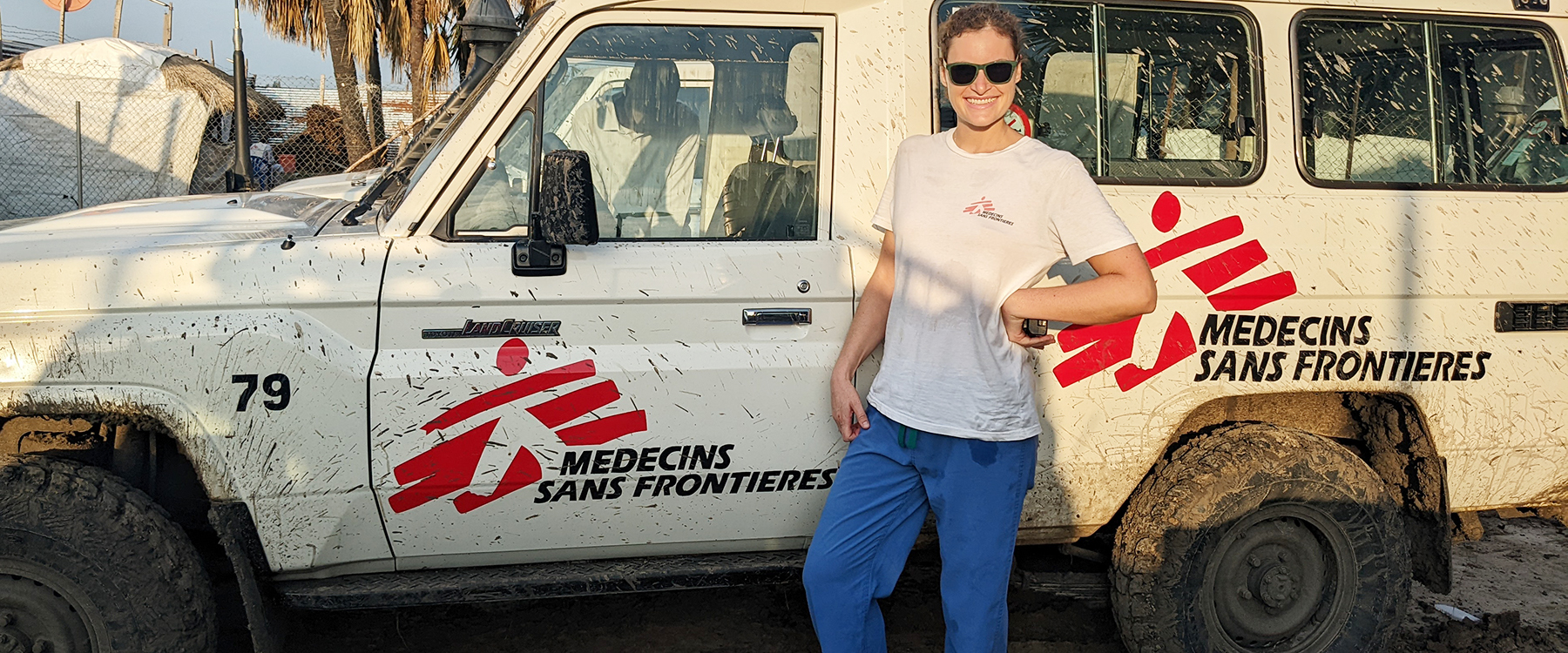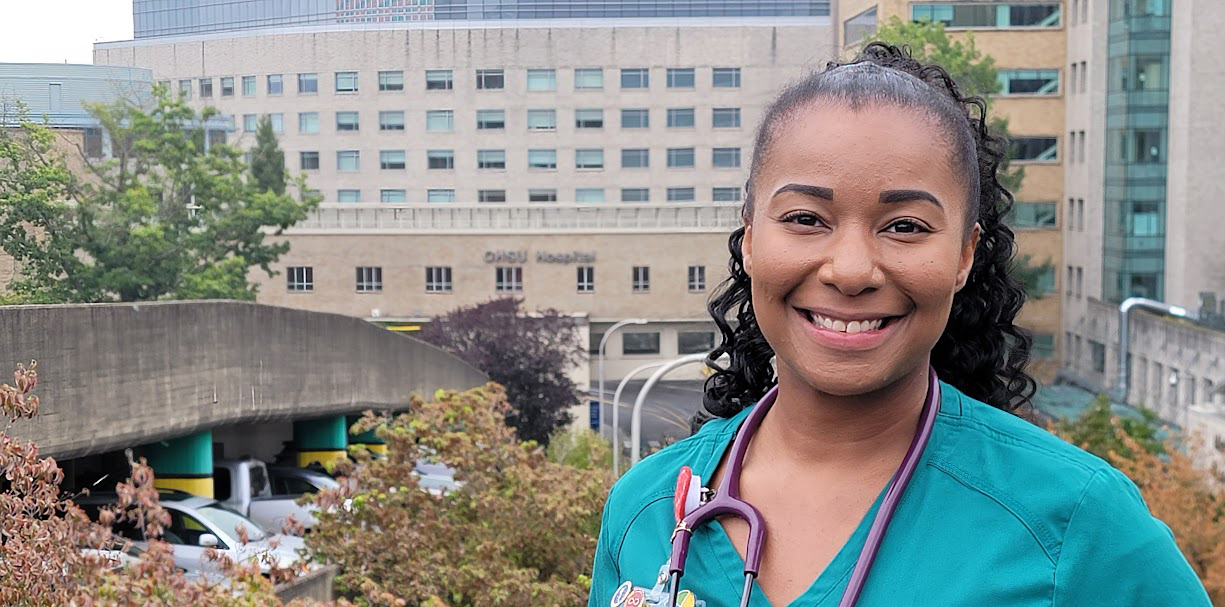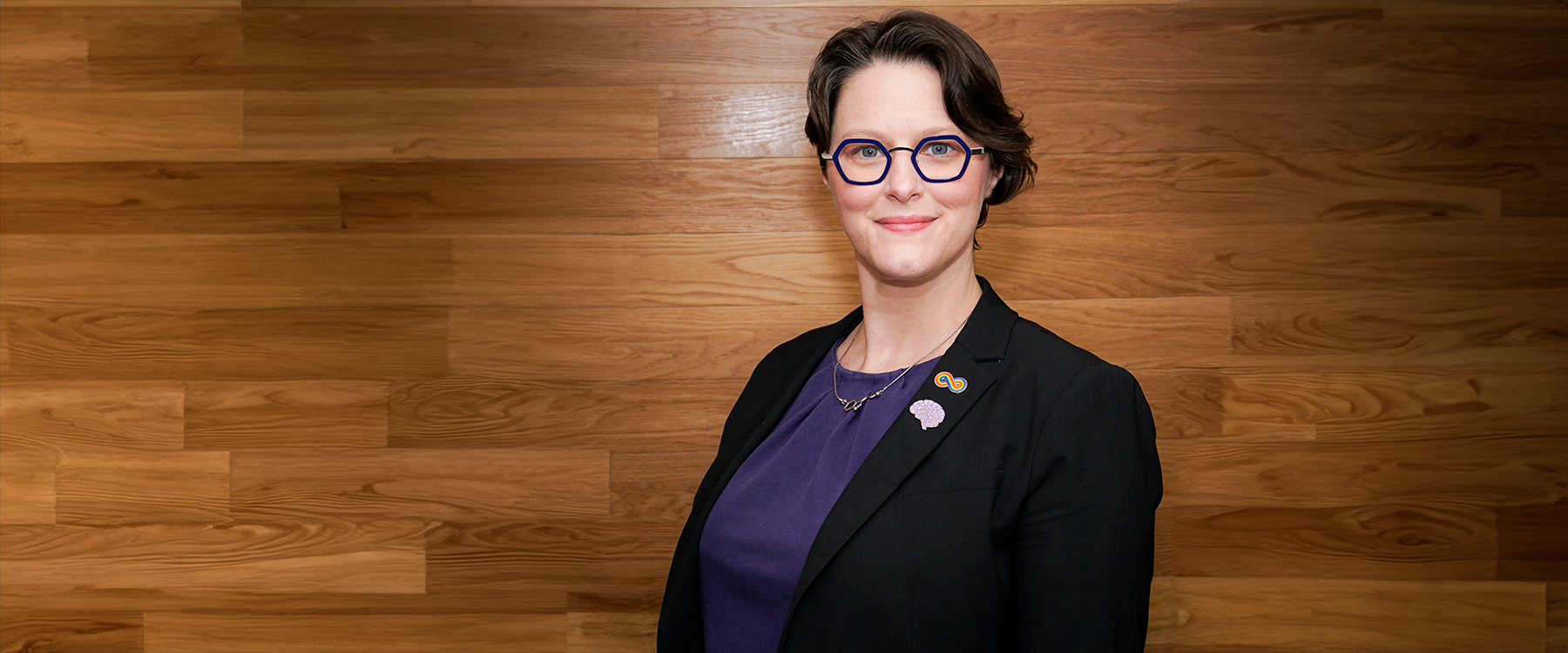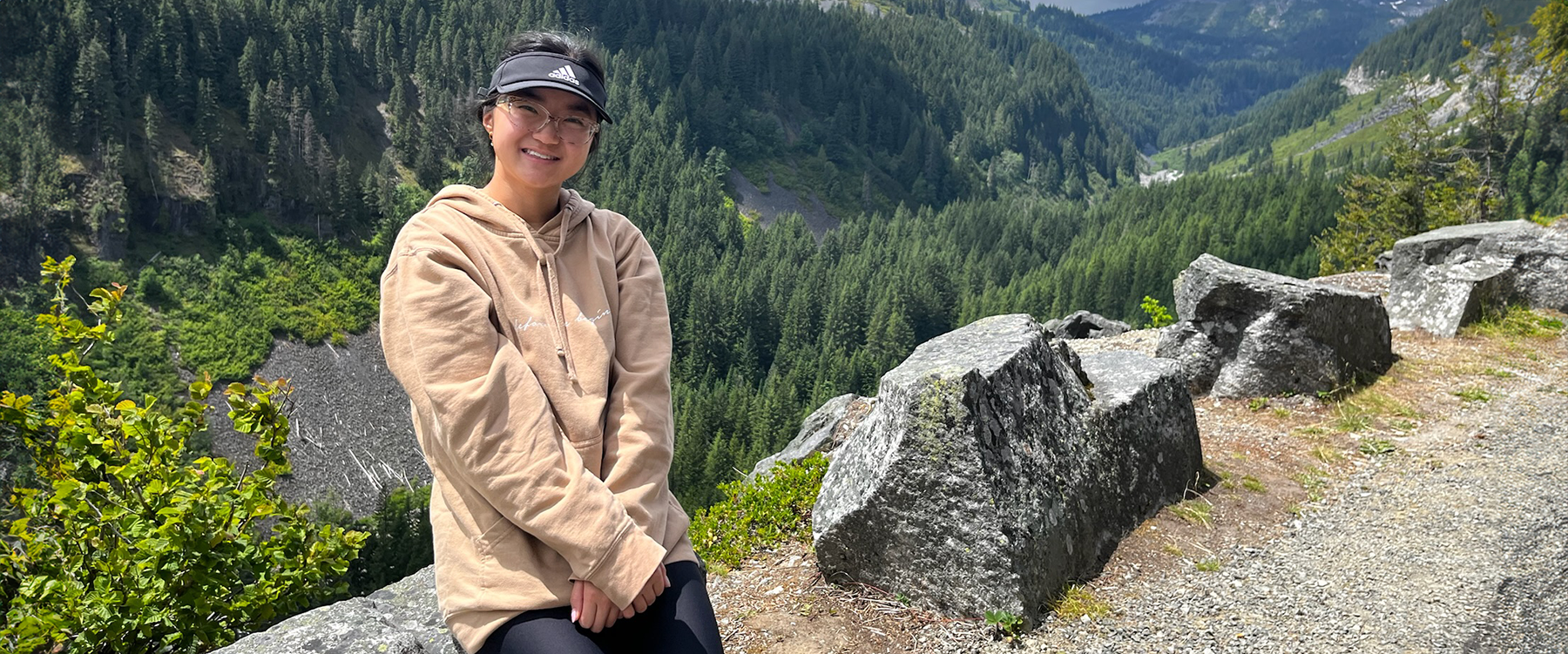OHSU School of Nursing alumna Sarah Paeth, B.S. ’14, M.N. ’16, CNM, grew up in Toledo, Oregon, and remembers that her rural community was not often served by a medical provider. Believing that all communities deserve access to quality health care, especially essential maternal-child health care, inspired Paeth to become a certified nurse-midwife.
Paeth first practiced midwifery in the rural community of Roseburg, Oregon, which saw high rates of tobacco, alcohol, and drug use. When they became pregnant, her patients were often motivated to overcome their substance use.
“I really feel like midwifery is public health. This is the only time in a person’s life where they get to see a provider practically every other week for nine months,” Paeth said. “It’s this access point for them to make positive changes that are going to improve health outcomes for their whole life, but also have this ripple effect on their infants, on their families and eventually on their communities.”
“I feel strongly that your access to quality care should not depend on your zip code.”
Sarah Paeth
Paeth’s OHSU School of Nursing classmate, Lori Swain, B.S. ’14, M.N. ’16, D.N.P. ’17, CNM, also sees prenatal and postnatal care as an opportunity to affect the well-being of entire families.
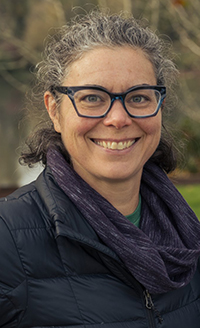
“We provide medical care, but the heart of it is that a child is being born, a family is growing,” Swain said.
Swain and Paeth have high praise for OHSU’s nurse-midwifery program, which consistently ranks among the top programs in the country.
“It prepared me for everything I have done in my career,” Paeth said. She is thankful to have been selected for the Scholars for a Healthy Oregon Initiative, which paid for her nurse-midwifery education.
Swain, who was also selected for the Scholars for a Healthy Oregon Initiative, feels she was well-served by the faculty and enjoyed working with her cohort during her time with the program.
“I’m really thankful for the strength of the OHSU midwifery program,” she said. “We were well prepared to hit the ground running.”
Swain is currently a member of the Legacy Medical Group Women’s Health team in Silverton, Oregon, and has worked with students there as a preceptor over the past several years. She notes that when OHSU students arrive in their clinic, they are well-prepared and ready to apply their learning with hands-on experience.
Swain’s team serves patients from several rural Oregon communities, including Silverton, Gervais, Woodburn, Mount Angel and Molalla. About 35% of their patients identify as Hispanic or Latino. Though a patient may be bilingual, often times a family member prefers Spanish as their primary language. Swain speaks Spanish and feels it is beneficial to avoid using an interpreter.
“It really helps make those connections. The patients and families appreciate that,” she said.
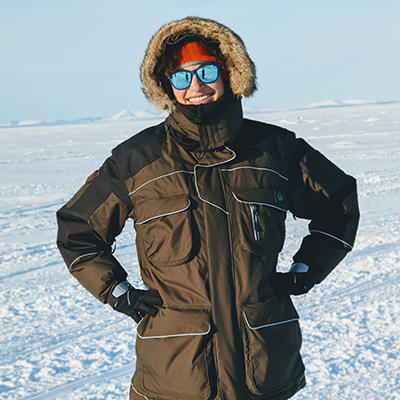
Paeth recently joined Swain’s team but splits her time between Oregon and Alaska, where she works for the tribal communities of the Northwest Arctic Borough. In Alaska, Paeth cares for members of the Inupiaq community at the Maniilaq Health Center In Kotzebue, a remote village 40 miles above the Arctic circle. Many of her patients live too remotely to be seen at the health center, so Paeth travels by bush plane 40 to 100 miles to care for them.
Weather in Alaska can make traveling difficult. When her plane is grounded, Paeth provides care using telehealth, guiding a local community health aide to conduct prenatal tests or procedures. Paeth often works without a physician nearby, so if there are complications, she may consult with an M.D. as far away as Anchorage.
“I feel called to serve people in really remote locations,” Paeth said. “I feel strongly that your access to quality care should not depend on your zip code.” Her commitment to this belief has also taken her to South Sudan, where she has worked with Doctors Without Borders.
Paeth credits the OHSU nurse-midwifery program and the School of Nursing faculty for providing her with the tools she has needed to think outside the box and problem-solve in all situations, whether in the Artic Circle or Africa.
“They were so thoughtful in preparing me for everything that I might face,” she said. “My foundation of midwifery training that I got at OHSU was unparalleled. I really feel that the OHSU midwifery program is like a beacon on the rock of midwifery training.”
Swain and Paeth both encourage other health care practitioners to consider serving rural communities. Swain enjoys providing maternal care to patients outside of an urban center. She says that because she does not have every tool and specialist nearby, she has learned to be creative and solve complex problems in unique ways.
Paeth feels that working with a rural maternal population has taught her lessons about women’s resilience. She says, “Women prove to me every day just how strong they are. They show me that if we lift up women, we lift up the world.”
